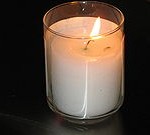“It is Better for Man Not To Have Been Created”: Seven Years to the Terror Attack in Yeshivat Otniel
January 6, 2010 by Yakov Nagen
Filed under New Posts, Philosophy
by Yakov Nagen
During the course of the Shabbos meal of Parshat Shemot 5763 in the Hesder Yeshiva of Otniel, while the students danced and sang הודו לה’ כי טוב כי לעולם חסדו, terrorists entered the kitchen and murdered the four boys who were preparing the next course: Noam Apter, Yehuda Bamberger, Gavriel Ho-ter, Zvika Zeeman.
It is hard to imagine a more glaring instance of conflict between song and reality. Yet, to my great surprise, at the memorial ceremony the bereaved fathers stood up and through the tears, danced and sang “הודו לה’ כי טוב”. What is the meaning of thanking God for the good from the midst of so much suffering?
תנו רבנן: שתי שנים ומחצה נחלקו בית שמאי ובית הלל,
הללו אומרים: נוח לו לאדם שלא נברא יותר משנברא,
והללו אומרים: נוח לו לאדם שנברא יותר משלא נברא.
נמנו וגמרו: נוח לו לאדם שלא נברא יותר משנברא. (עירובין יג ע”ב)
Our Rabbis taught: for two and a half years, the house of Shammai and the house of Hillel argued. One side said: “It is (“Noach”) better for man not to have been created than to have been created,” and the other side said, “it is better for man to have been created than not.” They voted and concluded: better for man that he had not been created. (Eruvin 13b) The conclusion of the Talmud constitutes, to say the least, a pessimistic view on life. However, the Mei HaSheloach, Rabbi Mordechai Yosef of Izbica, notes that the Talmud did not say, “טוב לו לאדם שלא נברא”, it is “good”, but rather, “נוח”. Although the place from which we have come and to which we will ultimately return is more “”נוח, more easy, convenient and comfortable, it is clearly “טוב” (good) that we have come to the world.
This distinction underscores a fundamental perspective on existence: We live not for the “”,נוח but rather for the “טוב”. Throughout each and every day, we face life’s challenges and make our decisions. Sometimes we are conscious of these decisions, but generally we are unaware that we have come to a crossroads and have chosen – to help, to take responsibility, to change. Our daily choices generally do not center around doing good or evil, but rather between good and comfortable, “נוח”. The recognition that the purpose of life is the good, and not the “,נוח” will help us make the right decisions.
The two competing inclinations in the human psyche are often defined as the יצר הטוב and the יצר הרע. There is a danger that these definitions can lead one to decide that it is sufficient to avoid negative activity. In truth, to realize the purpose of our existence, we must choose the good, and the יצר that impedes us, the fundamental weakness that we must overcome, is none other than the!יצר נוח
There are people who cope with great suffering in life. Many find themselves in situations that lead them to feel”נוח לו לאדם שלא נברא משנברא”, a feeling that can lead to a loss of the will to live. Nevertheless, one can find the strength to continue through a sense of mission to seek the good, and thereby to give life meaning.
Two years after the terrorist attack, I stood over the grave of Noam Apter in Shilo and realized for the first time that this distinction, the doctrine of “הטוב והנוח”, is the story of Noam. When the terrorists opened fire, the doors from the kitchen to the dining room were suddenly closed and locked. This delayed the terrorists from bursting into the dining room where the students were dancing, and gave the students time to take cover and begin to return fire.
Noam’s body was found next to the doors. Noam’s final choice was to lock the doors and save his friends.
 Print This Post
Print This Post

